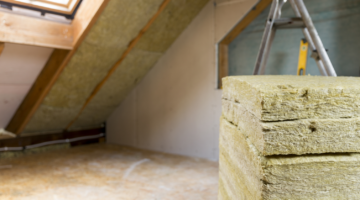
We wrote a few weeks ago saying that the Green Deal is going to be relaunched. First, though, there are a few issues to iron out. The main sticking point left over from the last Green Deal is the so-called ‘Golden Rule’. This isn’t easy to explain, but what it essentially meant was that the householder couldn’t pay more for an energy saving measure than it saved them on their bills. Whilst this sounds good, the Green Deal golden rule was unrealistic and effectively meant some people ended up with insufficient funding for their measures.
The Golden Rule
This ‘Golden rule’ made installing anything other than low-cost measures unattractive, and this contributed to the Green Deal’s demise in Summer 2015.
Householders installing various energy saving technologies paid for them in small instalments through their energy bills (the same amount they were expected to have saved in energy that month as a result of insulation or a new boiler etc). Under this rule, the Government would only pay out (as a loan) the amount you were expected to save on your energy bills over the expected lifespan of the measure. Realistically, this wasn’t always enough to pay off measures that cost thousands to buy and install.
Low-cost measures such as loft insulation paid for themselves pretty quickly. But of course, loft insulation and cavity wall insulation were and still are pretty well covered by the ECO grant, which means that a loan is very unattractive when a grant is available! High cost measures with limited or no grant funding would be ideal for a loan scheme, but the Golden rule combined with some rather unattractive interest rates and set up costs made this also a poor option for a homeowner making a big investment.
So, what was the issue with other technologies?
Take a boiler, for example. Someone might save £100 a year by installing a new boiler, so, after the 12 years the ‘funding’ runs for (the expected lifespan of the boiler), they will have paid back around £1200. Say their boiler actually cost £2500 – they are left with a deficit of £1300 which they will have to pay with no help from Green Deal funding. This is because the ‘Golden Rule’ prevents them from paying back more than they have saved on their bills. Add 12 years of interest to the remainder of the debt. This left some people footing quite a big bill – an issue for many who were promised the scheme as a money saver.
So with the Green Deal scheme due to launch any time soon, providers are working to come up with a solution so that they can get going and hopefully bring people the genuine help the scheme was designed to provide.
What will change?
The Golden Rule is set in stone by government legislation, and the new scheme can only break the rule if the law is changed. This may well happen in the future, but with a releaunch being imminent, it is unlikely the scheme is going to get rid of the Golden Rule straight away at the relaunch. It is going to take some time to get the legislation in place to allow larger loans on the electric meter.
The relatively high interest rate of the old scheme would probably also need to be reduced in order for a bigger take-up of the scheme this time around. Our sources tell us that this also is unlikely to change, at least in the short run.
So how is it going to be different? One of the key changes we are hearing mooted is that there will be a change in how the savings from the new measures will be calculated. The old scheme used some generic assumptions about the savings to be made from installing a new boiler or a heat pump for example. The new scheme is likely to consider the model of the new installation and this is likely to mean the predicted saving swill increase somewhat, allowing a greater loan to be provided that still meets the Golden Rule.

Another point that is brought up frequently regarding these loans is how it affects a homeowner who is moving home with a Green Deal plan attached to the property. With the Golden Rule, this was somewhat easier to swallow for the new owner, as they could be sure that the savings to be made from the new installation equalled or outweighed the monthly cost of the loan. If the Golden Rule is scrapped, it would be easy to make a new homeowner pay for an installation over and above the savings to be made, which opens up a big can of worms.
So plenty of things to ponder for the new private owners of the Green Deal. We think that a lot of these problems are surmountable, but there are going to have to be some legislative changes.
Did you experience the old Green Deal? Did it pay back for you?
Think we missed something? Do you have a different opinion?
Comment below to get your voice heard…












No it did not payback for me. I paid around £90 per month for gas and electricity together.
Now I pay £150 per month. £50 of which goes to the green deal. The interest rates were quite high also. It cost around £4500 for a boiler and one small radiator then interest on top of that.makes it over £7000. Not to mention the installer and insurers are out the box